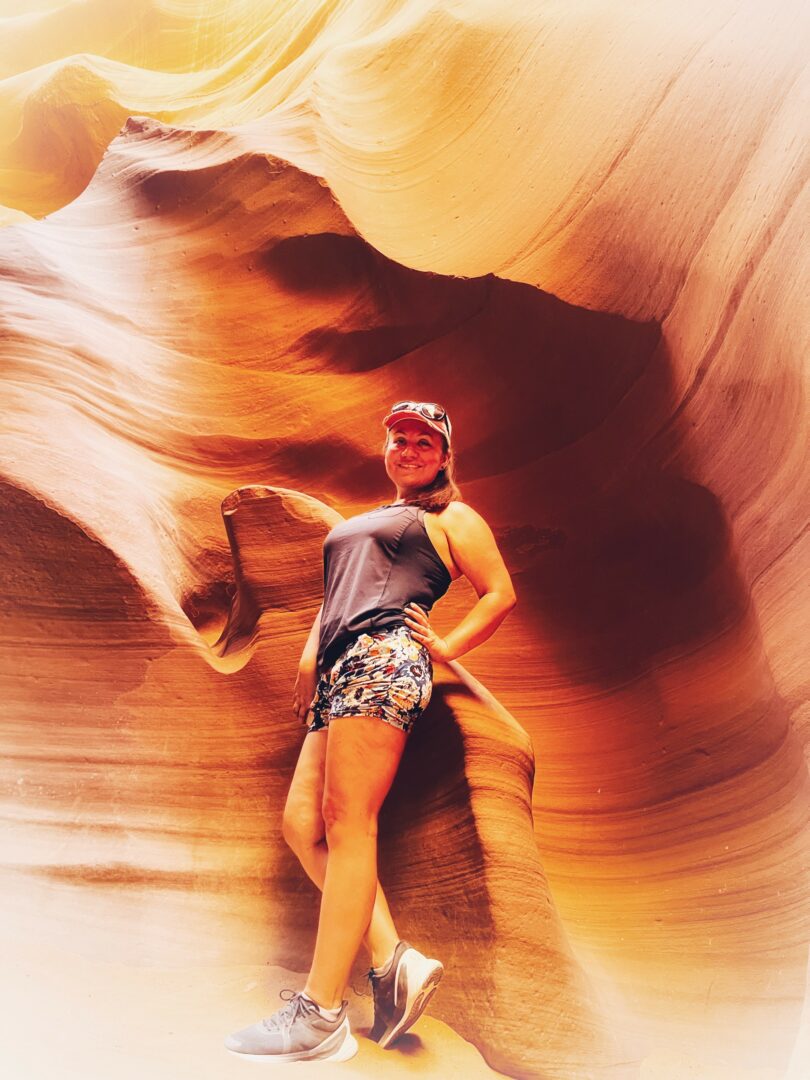Karla Rios Luna shared their story and experiences with us recently and you can find our conversation below.
Karla, so good to connect and we’re excited to share your story and insights with our audience. There’s a ton to learn from your story, but let’s start with a warm up before we get into the heart of the interview. What do you think others are secretly struggling with—but never say?
I think most people are quietly struggling with grief—whether they recognize it or not. Not only the grief that follows death, but the subtler, everyday grief of lost versions of ourselves, lost dreams, lost safety, or lost connection. We live in a culture that teaches us to individualize our pain—to “get over it,” to carry it alone, to pretend that healing is a private task. But grief is never private. It’s the most universal experience we share, the invisible thread that binds us all.
What we truly ache for is to remember that healing was never meant to be a solitary act. Every time one of us tends to our sorrow, we’re also tending to the collective field of humanity. We are roots in the same soil; when one root heals, the nourishment spreads.
So what people rarely say out loud—but what lives in almost every heart—is, “I’m grieving, but I don’t know where to put my pain.”
Soulmorphosis invites us to stop isolating that ache and to remember that our healing deepens when it happens in oneness. When we grieve together, we return to the truth that none of us are broken alone—we are becoming whole, together.
Can you briefly introduce yourself and share what makes you or your brand unique?
My name is Karla Ríos Luna, and I’m the founder of Soulful Labyrinth, a holistic coaching practice dedicated to guiding individuals through grief, transformation, and ancestral healing. My work sits at the intersection of psychology, neuroscience, and spirituality—what I call the soulful science of becoming whole again.
Through Soulful Labyrinth, we explore how loss can become a teacher rather than an enemy. I help people understand that grief is not just emotional—it’s somatic, relational, and generational. It travels through the body and across family lines until it is finally witnessed and transformed. My approach blends evidence-based therapeutic frameworks with symbolic and ancestral practices that allow clients to process pain at both the psychological and soul level.
We share many of these teachings through our online spaces—our Instagram page @soulful_labyrinth
and our new website www.soulcoach.site
—where we offer reflections, rituals, and resources for emotional integration and collective healing.
Right now, we’re preparing for the upcoming release of my book, Soulmorphosis: 7 Stages of Growth Through Grief, which expands on over ten years of personal and professional study into how the human spirit evolves through loss. The book introduces The Quantum Spiral of Becoming, a model that unites the rigor of psychology, the insights of neuroscience, and the depth of spiritual growth into one cohesive map for transformation.
What makes this work unique is its invitation to move beyond the idea of healing as a solitary journey. At Soulful Labyrinth, we see healing as an act of oneness—an unfolding that honors both the science of the nervous system and the mystery of the soul. My mission is to help people understand that grief is not the end of connection; it is the beginning of a deeper belonging.
Appreciate your sharing that. Let’s talk about your life, growing up and some of topics and learnings around that. What relationship most shaped how you see yourself?
The relationship that has most shaped how I see myself is the one I’ve built with my own soul—an inner relationship forged in the fires of loss and transformed through love.
Over the years, life has asked me to release what I thought defined me: the loss of my mother, my paternal grandmother who was a second mother to me, the ending of my marriage, the grief of leaving my home country and the familiarity of my roots, and even the identity I once held through my career. Each loss felt like another layer being stripped away—until all that was left was me, facing myself without titles, without roles, without the illusion of certainty.
In that stillness, I learned that the relationship we often neglect the most is the one with our own essence. Losing those I loved taught me that connection isn’t maintained through proximity or permanence—it is sustained through intention and energy. When the physical bonds fall away, what remains is the quiet current of soul that continues to weave us together.
Through this journey, I began to understand that healing isn’t about becoming someone new—it’s about remembering who we’ve always been beneath the noise. By exploring my ancestral roots, I discovered that much of what I carried wasn’t mine alone—it was inherited grief, inherited silence. And by bringing compassion and awareness to those patterns, I started to transform them into wisdom.
That is what Soulmorphosis is born from—the realization that the truest relationship we will ever cultivate is the one within. To truly love ourselves is not an act of vanity; it is an act of remembrance. It’s looking at our own reflection and recognizing the lineage, the love, and the light that have always been part of our becoming.
So when I think about what relationship most shaped how I see myself, I would say—it’s the lifelong, sacred relationship with my own soul. The one that has carried me through every ending and quietly whispered: you are never alone; you are always becoming.
What did suffering teach you that success never could?
Suffering taught me what success never could—that we do not heal in isolation, and that pain carries its own sacred intelligence.
Success speaks to the outer world—it celebrates our doing, our achieving, our becoming visible. But suffering takes us inward. It strips away every illusion of control, every external marker of worth, until we are left face-to-face with what is most real: our essence, our lineage, our soul.
When I lost my mother, my grandmother, my marriage, my homeland, and even the sense of who I thought I was, I discovered that grief is not the end of life—it is the invitation into a deeper one. In those moments, my outer world collapsed, but my inner one began to awaken. That is when the practice I now call Ancestral Resonance Therapy was born—not as a concept, but as a lived experience.
Ancestral Resonance Therapy is the process of listening to what the body remembers when words have fallen short. It’s the moment when we stop trying to fix our pain and begin to hear it. It’s the awareness that our emotions are not random—they are echoes of generations, resonating through the nervous system, asking to be witnessed, integrated, and released.
Suffering became my teacher because it revealed that trauma doesn’t only live in memory; it lives in resonance. When we learn to listen to those frequencies within us—with compassion instead of judgment—we begin to re-tune the instrument of the soul. That re-tuning brings coherence between our lived experience and our ancestral inheritance. It allows love to travel where silence once lived.
Success never taught me how to be still. It never taught me how to hold my own trembling, or how to recognize my mother’s grief living quietly in my chest. Suffering did. It showed me that our deepest wounds are not there to define us—they are portals into the collective heart of humanity.
So, what suffering taught me that success never could is this: wholeness does not come from rising above pain, but from descending into it with presence. Healing is not victory; it is resonance. And through that resonance, we don’t just heal ourselves—we begin to heal the echo of those who came before us and those who will come after.
That, to me, is the most profound success of all: the reclamation of love as our original frequency.
So a lot of these questions go deep, but if you are open to it, we’ve got a few more questions that we’d love to get your take on. What’s a belief or project you’re committed to, no matter how long it takes?
The project I’m most deeply committed to—no matter how long it takes—is building a living field of healing through the work of Soulful Labyrinth and Ancestral Resonance Therapy.
For me, this is not a business or a brand—it is a vow. A vow to help transform how humanity relates to grief, to remind us that pain is not a punishment but a passageway toward remembering who we truly are. My dream is to create a space—both in practice and in presence—where those in sorrow can find not a quick cure, but companionship, language, and belonging.
I am not in a hurry to make it “successful” in the traditional sense. I am here to root it, to let it grow organically, with integrity, depth, and time. Just as healing unfolds in spirals, this work does too. Every client, every story, every loss that finds its way to me becomes part of a greater tapestry of remembrance.
Through Ancestral Resonance Therapy, my commitment is to help people understand that their pain is not isolated—it is resonant. It carries the voice of generations, waiting to be alchemized into wisdom. This approach bridges psychology, neuroscience, and spirituality, showing that healing is not an intellectual pursuit—it’s a re-tuning of the soul to its natural frequency of coherence, compassion, and connection.
And so, the belief that guides everything I do is this: that grief, when met with awareness and love, becomes the most powerful evolutionary force we have. My life’s work is to walk beside others as they move through that transformation—to help them realize that their suffering is not an ending, but a beginning.
If it takes a lifetime—or many lifetimes—to leave behind this imprint of healing, that is a gift I accept with reverence. Because when one person heals, the resonance travels. That is the quiet revolution I am committed to: helping humanity remember that we rise not in isolation, but in oneness.
Okay, we’ve made it essentially to the end. One last question before you go. If you knew you had 10 years left, what would you stop doing immediately?
If I knew I had only ten years left, I would stop postponing presence. I would stop living as though life were a rehearsal for something greater that has yet to arrive.
I would stop negotiating with my intuition—those moments when my soul whispers and my mind hesitates. I would stop saying “later” to what feels sacred now: the sunrise conversations with my children, the unplanned silences with friends, the small rituals that remind me that being alive is the miracle.
I would stop trying to explain my sensitivity or to fit it neatly into systems that measure worth by productivity. I would stop diluting my truth so it sounds more acceptable, more logical, more linear. The soul is not linear. It moves in spirals, in whispers, in currents of energy that our culture has forgotten how to honor.
I would stop giving energy to fear—especially the quiet, disguised fear that says, “you’re not ready yet.” Ten years is both an eternity and a breath. If I knew my time was finite, I would spend it creating, not perfecting; feeling, not performing.
Most of all, I would stop believing that healing must look a certain way. I would let it be messy, sacred, human. I would pour everything I’ve learned through grief, science, and spirit into helping others remember that their pain is not a detour but their doorway home.
Because if I had ten years left, every day would become a prayer: a promise to keep turning toward love, toward truth, toward the pulse of life itself—unmasked, unhurried, and utterly awake.
Contact Info:
- Website: https://www.soulcoach.site
- Instagram: @soulful_labyrinth
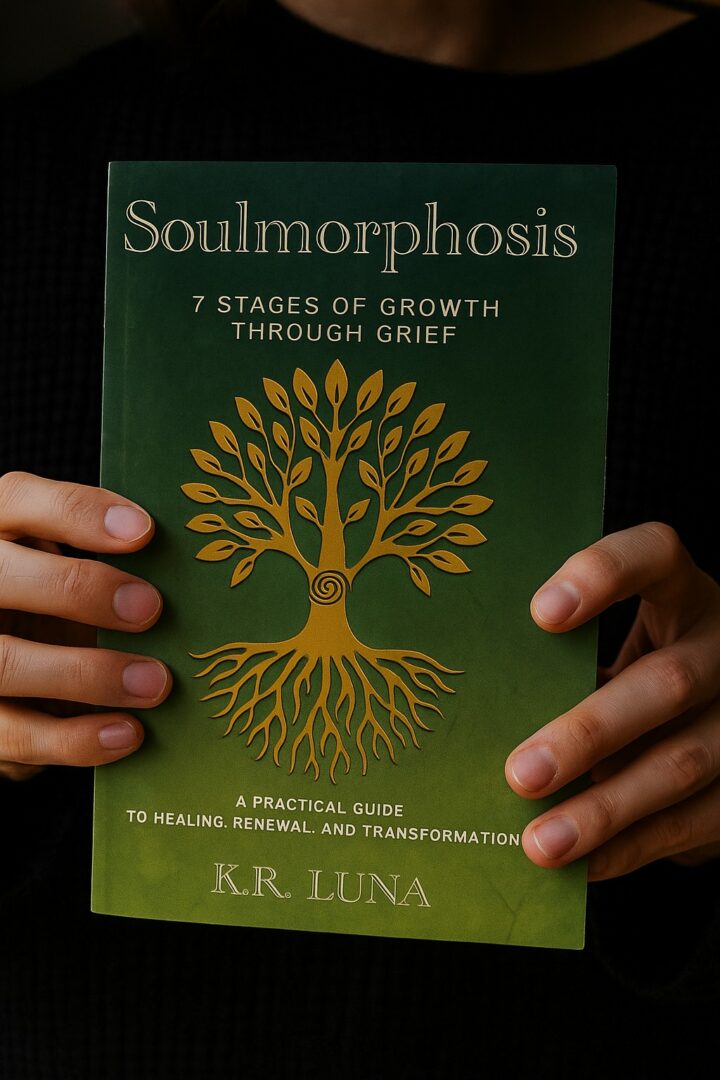
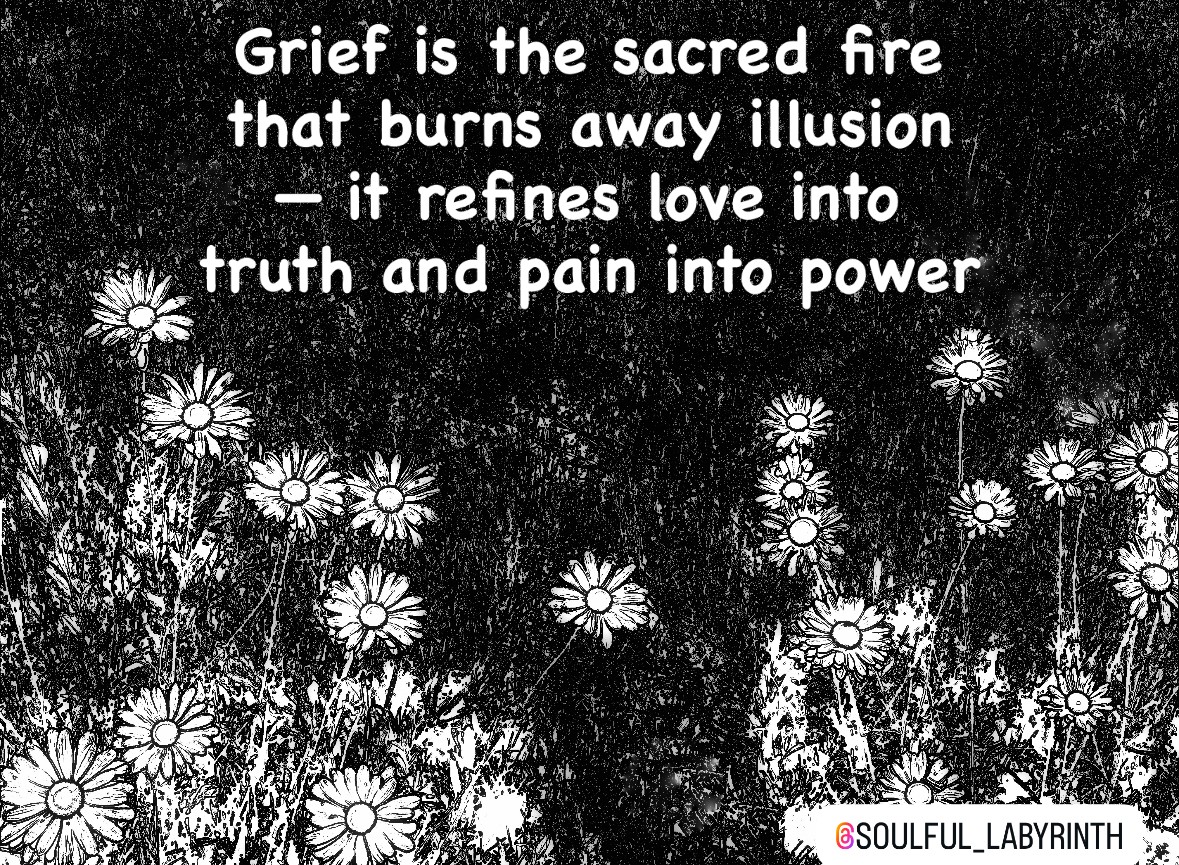
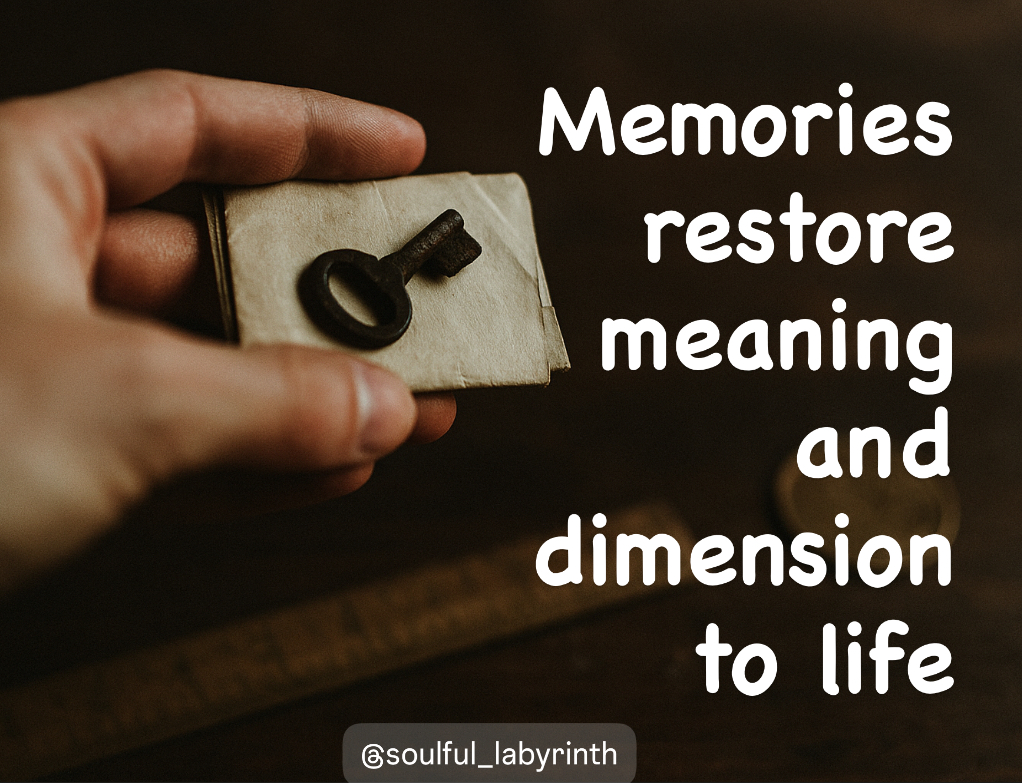
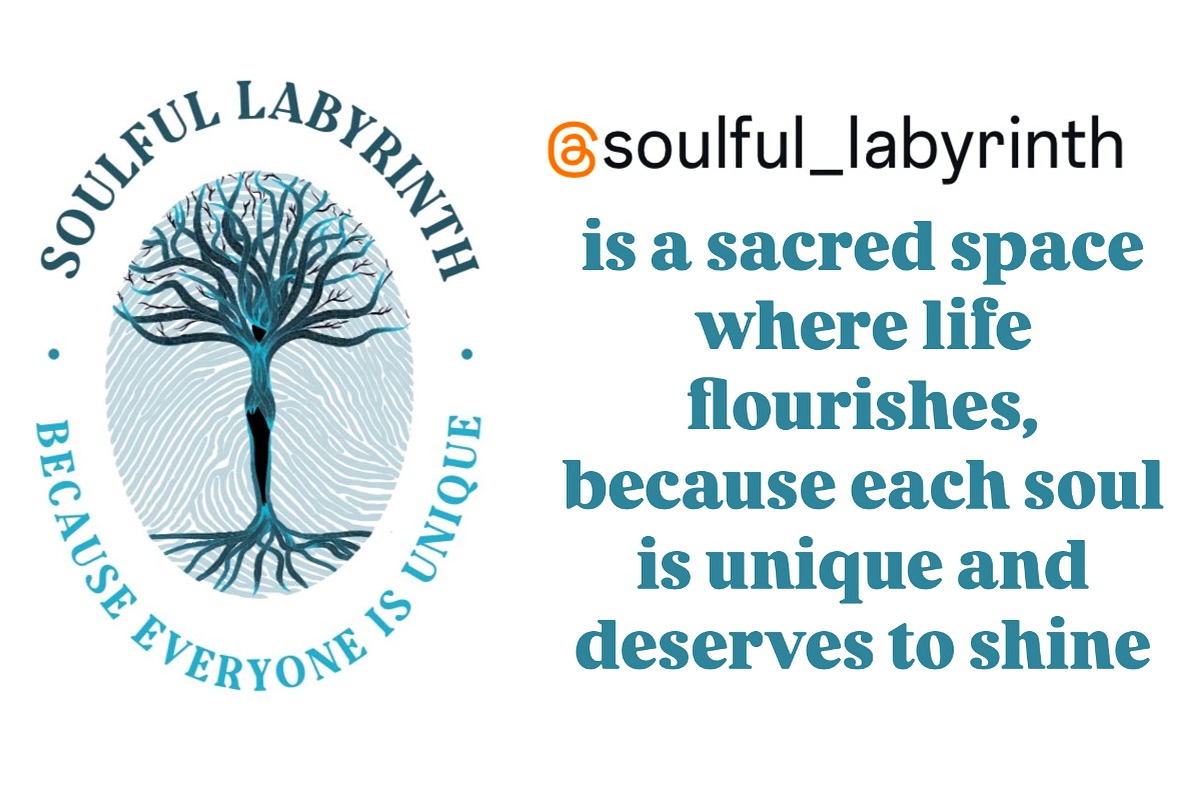
Image Credits
All proprietary to Soulful Labyrinth LLC
so if you or someone you know deserves recognition please let us know here.

